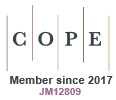Food and reproduction of wild house mice. 3. Experiments on the breeding performance of caged house mice fed rice-based diets
M. Bomford
Australian Wildlife Research
14(2) 207 - 218
Published: 1987
Abstract
Experiments were conducted on caged wild house mice, Mus musculus L., to determine whether rice grain is nutritionally adequate to support good breeding, and whether supplements of other foods improve breeding. Mice bred poorly or not at all on pure rice diets. Supplements of casein significantly increased both the proportion of females breeding (from 41 to 66%) and mean litter size (from 3.4 to 4.9). In two separate experiments supplements of sprouted rice grain significantly increased the proportion of females breeding (from 21 to 50% and from 38 to 88%), but did not increase mean litter size in either experiment. Supplements of vitamin A, gibberellic acid (GA3), mealworms or milk-ripe rice grain did not improve either breeding parameter. A higher proportion of females (67%) had litters on a high-protein diet of oats and sunflower seed than on a low-protein rice diet (15%). It is concluded that protein is a limiting nutrient for house mice fed rice diets.https://doi.org/10.1071/WR9870207
© CSIRO 1987


